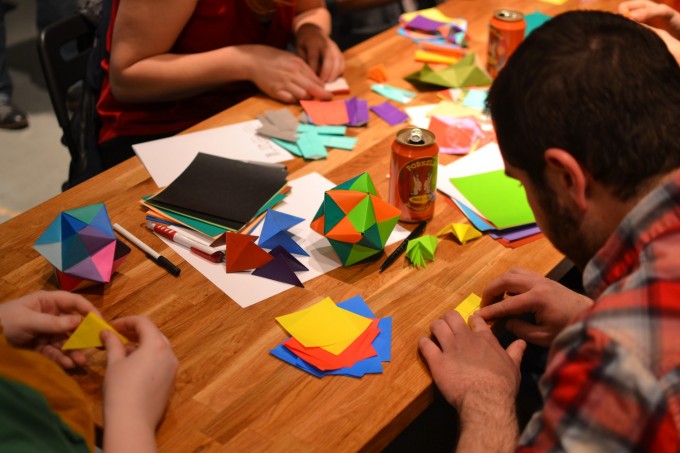The Brainery is a community classroom for all of New York City. We want to connect passionate amateur teachers with students looking for an introduction to a topic. We aim for breadth of topics rather than depth, a focus that mirrors our own wide-ranging interests.
After leaving college and lacking the structure it provided, we found it hard to motivate ourselves to learn new things and thought peer pressure would be the best way to force ourselves to keep learning.
At the same time, we were finding that the continuing ed classes offered around New York were often too expensive for our budgets or required too long of a time commitment for the rest of our lives, and so we started the Brainery as a way to introduce ourselves to new skills and topics without going broke.
We’re the co-founders and still the two main principals and were friends before we started the company. The Brainery started as a way to formalize our habit of attending educational events together and as a way to meet others interested in the same topics.
Originally, we intended our classes to be collaborative: there would be a leader, but no real teacher, and each student would complete research in advance that they’d share with the class. We quickly realized that these homework assignments were creating a barrier to entry for our classes – people wanted to learn, but didn’t have the time to invest in hours of research beforehand.
For example, during our first semester of classes, we hosted a four-week session on perfume and scents. Each week, students would visit a site we designed and be randomly assigned three vocabulary words/ideas to research. The “teacher” decided on the general structure of the class and picked the vocabulary words, but it was up to each student to research their words and bring their findings back to class. We pretty quickly ran into a wall with this format, though we were lucky in the perfume class to have a couple people from the industry who shared their experiences with the group.
Since then we’ve changed to an all-around more sustainable model – taking people from the community who are passionate about their hobbies or jobs and having them lead one- or two-session classes. It’s much more of a traditional classroom setting, but the low-commitment, low-cost nature keeps it accessible.
Nowadays, a teacher approaches us with an idea—an urban planner who wants to teach about the history of the Brooklyn waterfront, a science journalist talking about the art of non-fiction book proposals, or a culinary historian leading a class on sriracha that doubles as research for her upcoming book–and we help them shape it for our audience. We take care of all the marketing and the materials so that they can focus on teaching and leading an engaging class for the students.
Our audience tends to be young, college educated professionals; in fact, we usually find that the ultimate motivation for taking a class is social – people looking for a way to meet others – rather than an overriding interest in the topic.
We’re a for-profit, and all revenue comes from class fees and the occasional private or corporate event. Though the Brainery started as a side project for us, we both now work on it full-time. Jen draws a salary from the business, and Soma works the occasional freelance programming gig to pay the bills.
We don’t consider ourselves artists, nor do we see the Brainery as art. We have learned how to teach through our work at the Brainery, and Soma has begun to teach at other locations, including TAing at NYU.
For us, accreditation has never really been a question or an issue. We’re not really out to challenge or rebuild the educational system.
Though our own educational backgrounds differ, we’re both big believers in the importance of understanding the way the world works. To us, all knowledge is “useful” knowledge, even if it’s something perceived as frivolous or perhaps elitist, if it contributes to the way you look at and understand the world.
Technology’s extremely important, but at the same time, we’d largely be able to run our classes themselves with technology available in 1970. Technology helps get people to our classes, to organize our large and unwieldy schedule, and to allow students to easily sign up for classes. We could manage without it, but we’d be much less efficient.
We think the growth of pedagogical experiments such as ours may have a link with the recession. There seems to be a surfeit of smart, competent, generous and somewhat underemployed people around our city, and these sorts of classes give them an outlet, whether as a teacher or a learner.


